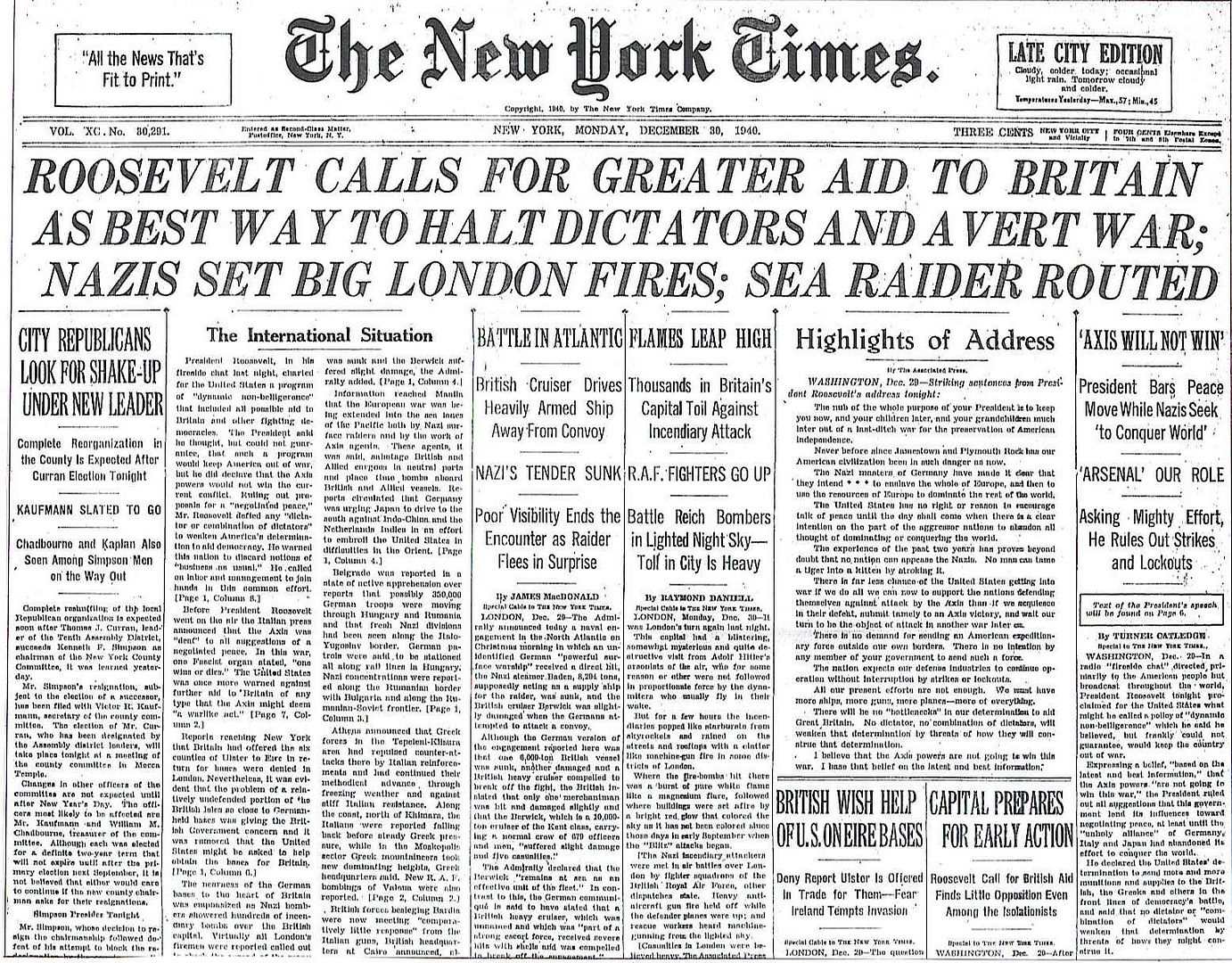
Posted on 12/30/2010 5:15:34 AM PST by Homer_J_Simpson

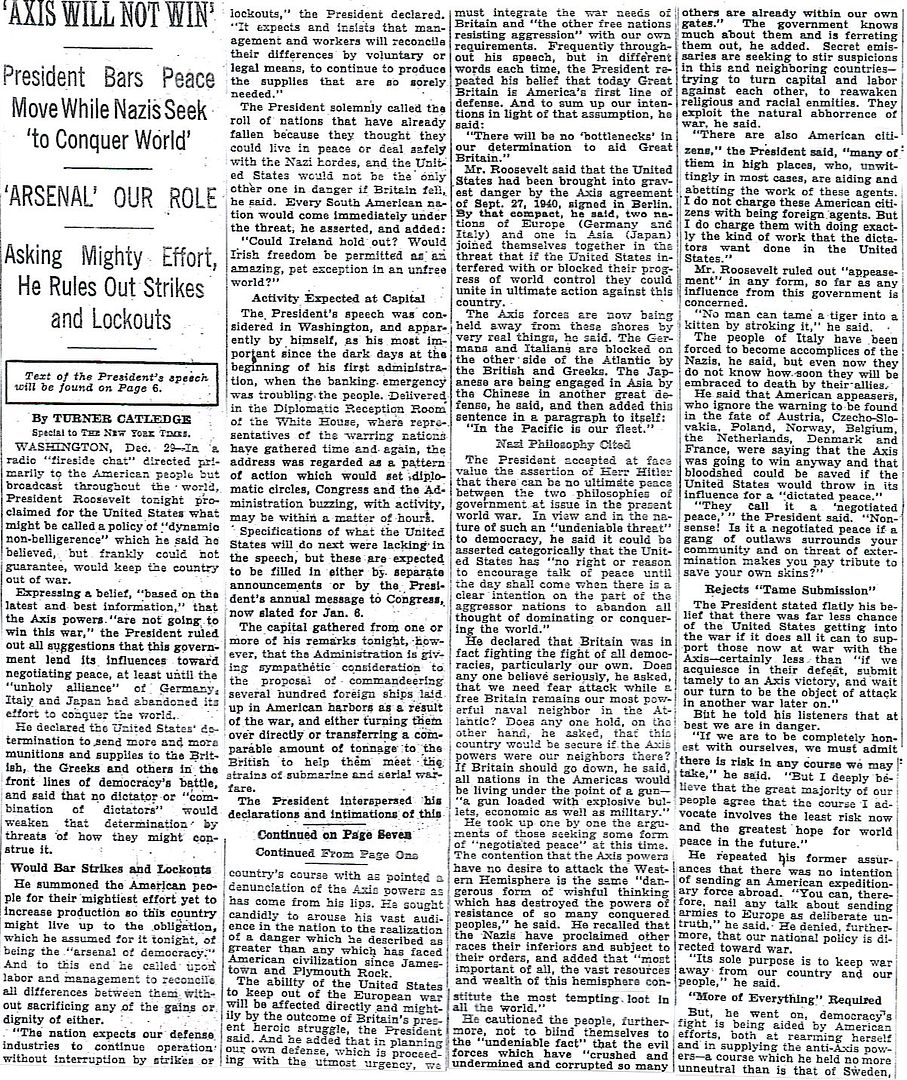
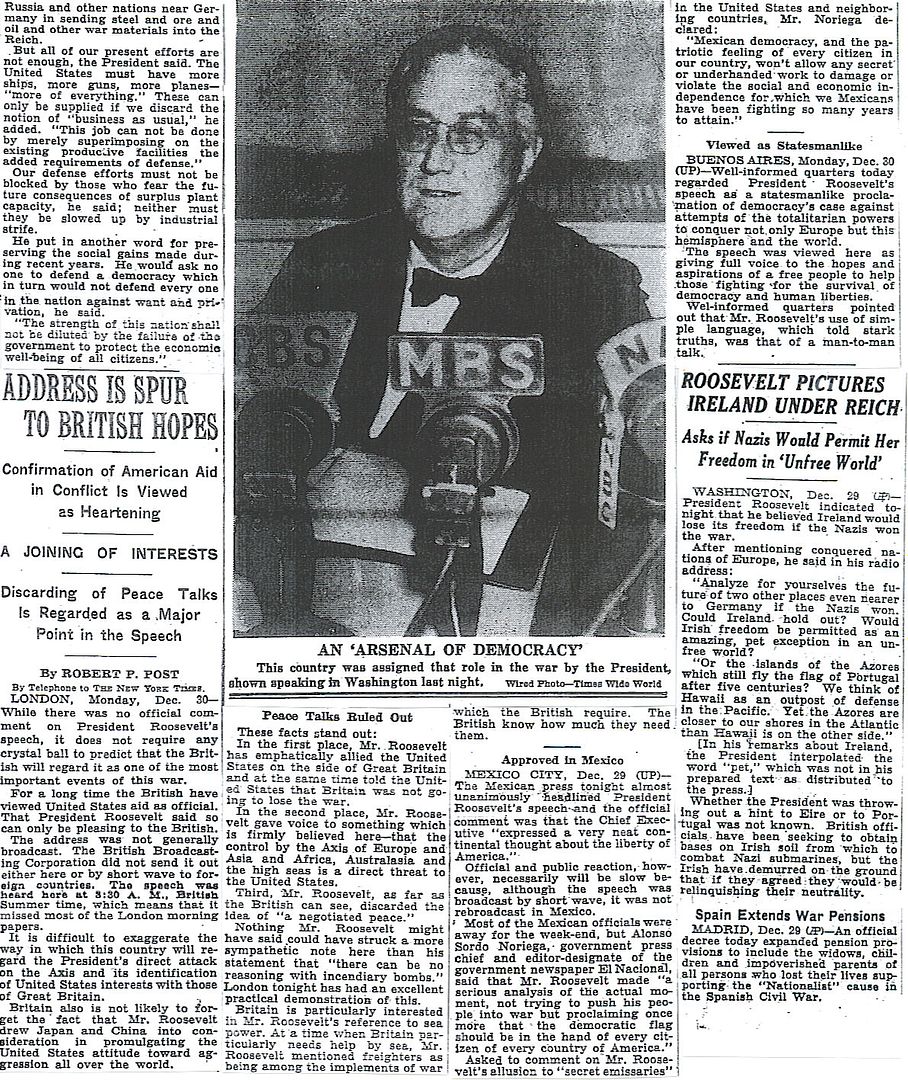
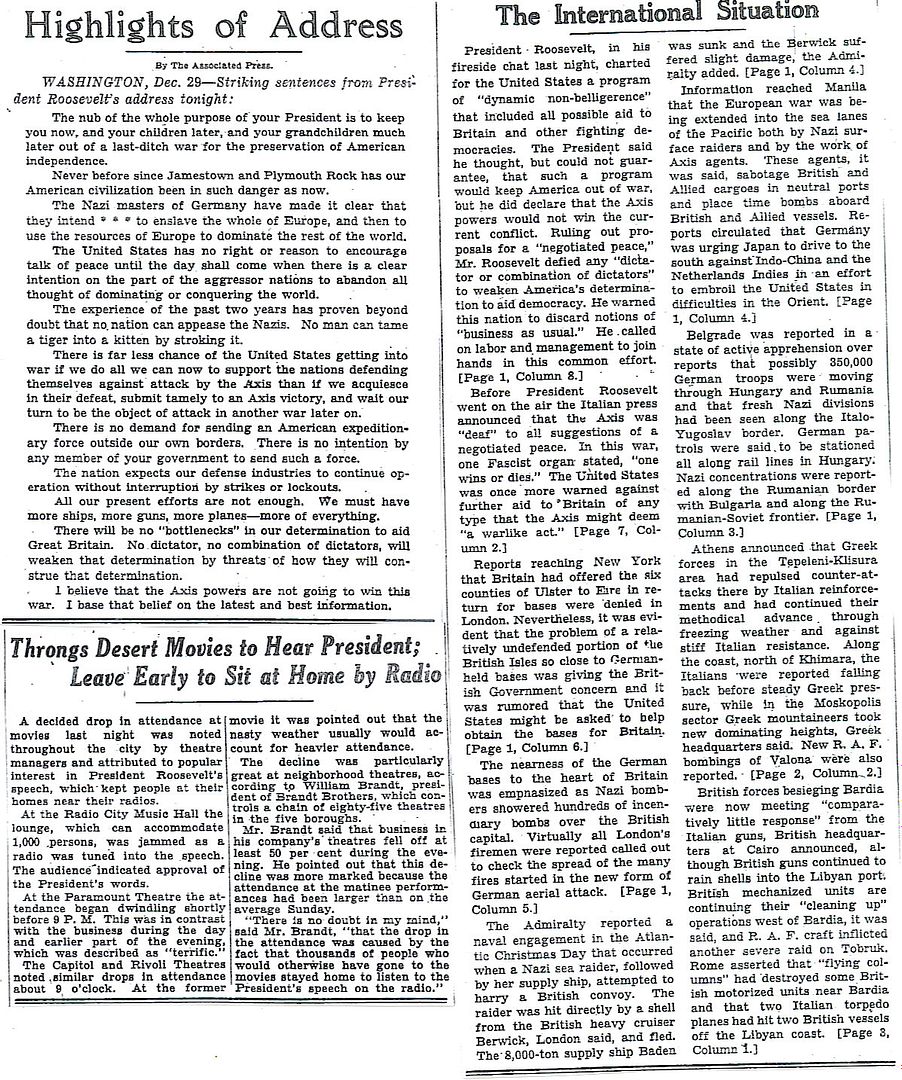
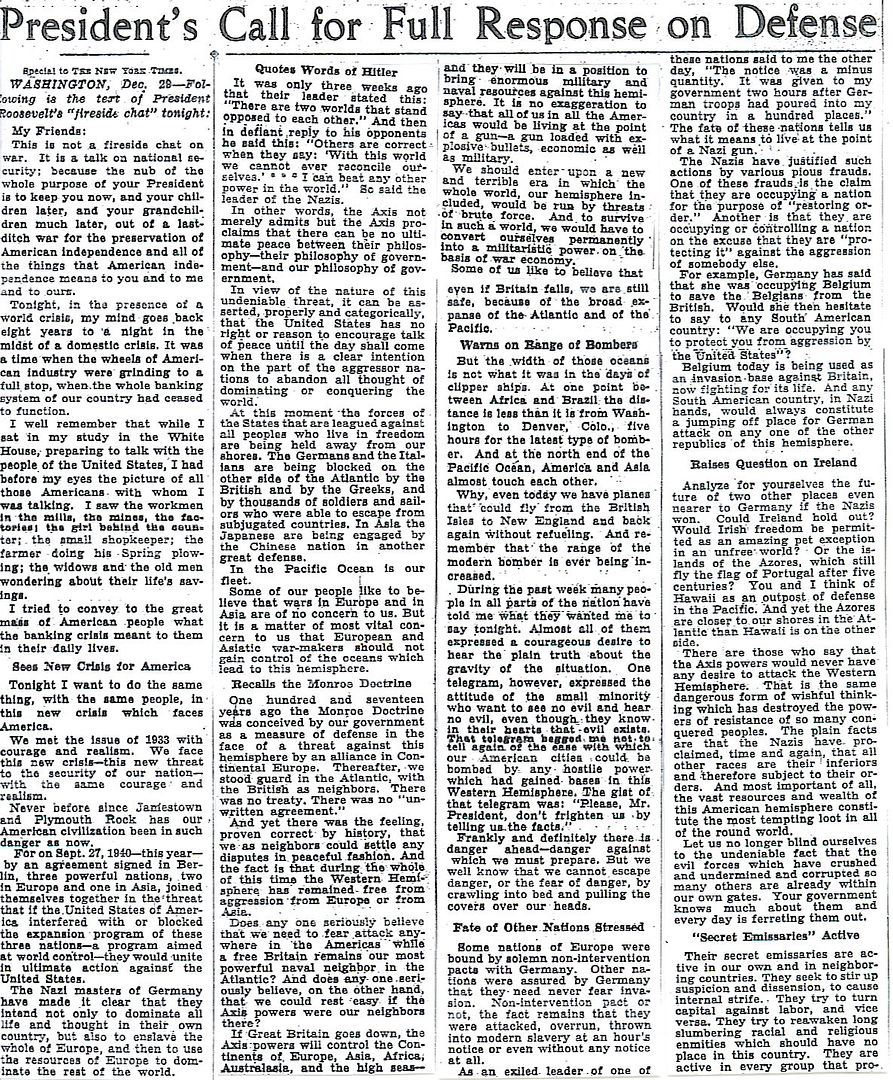
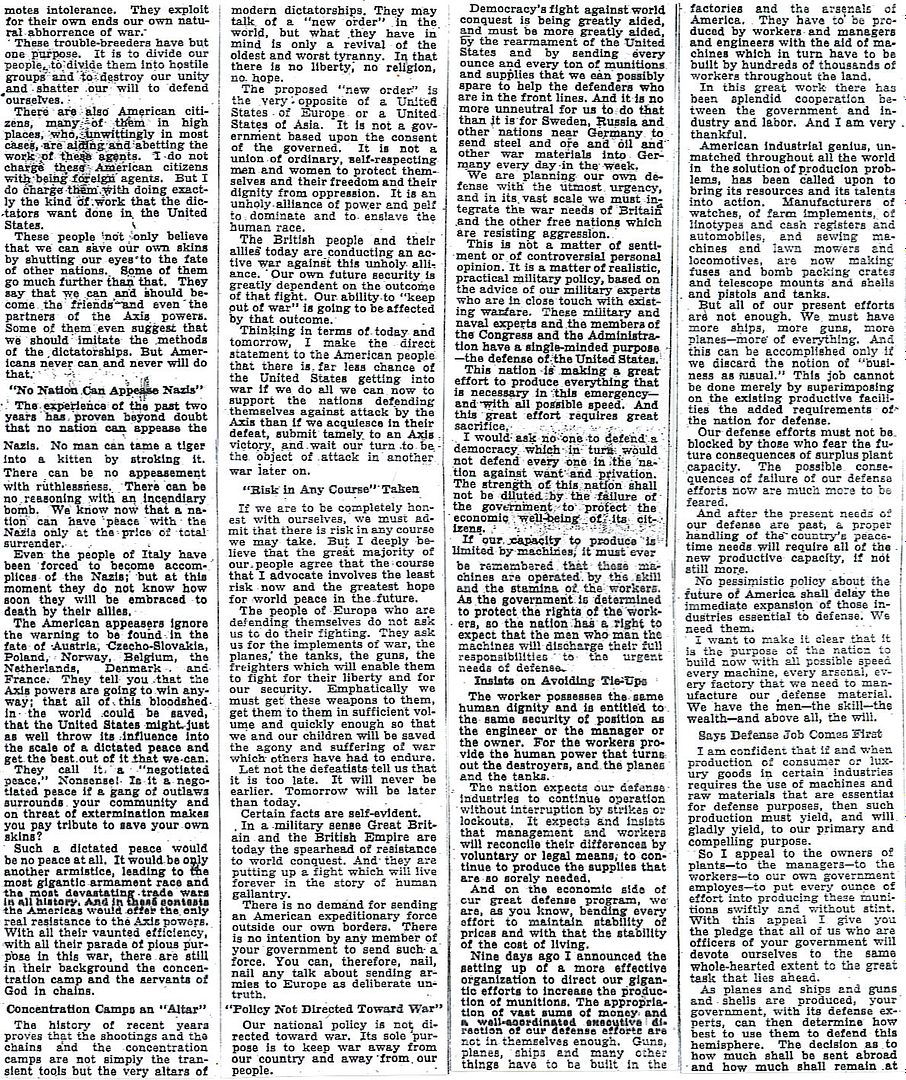
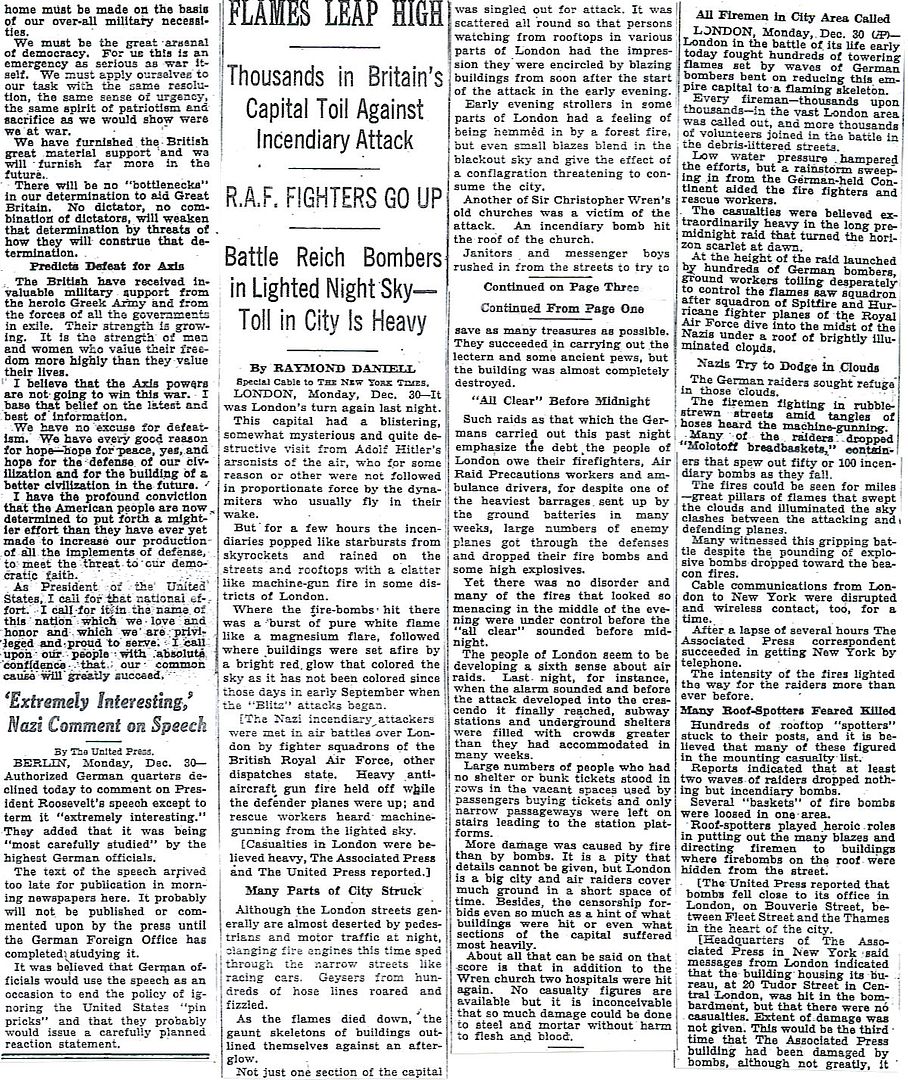
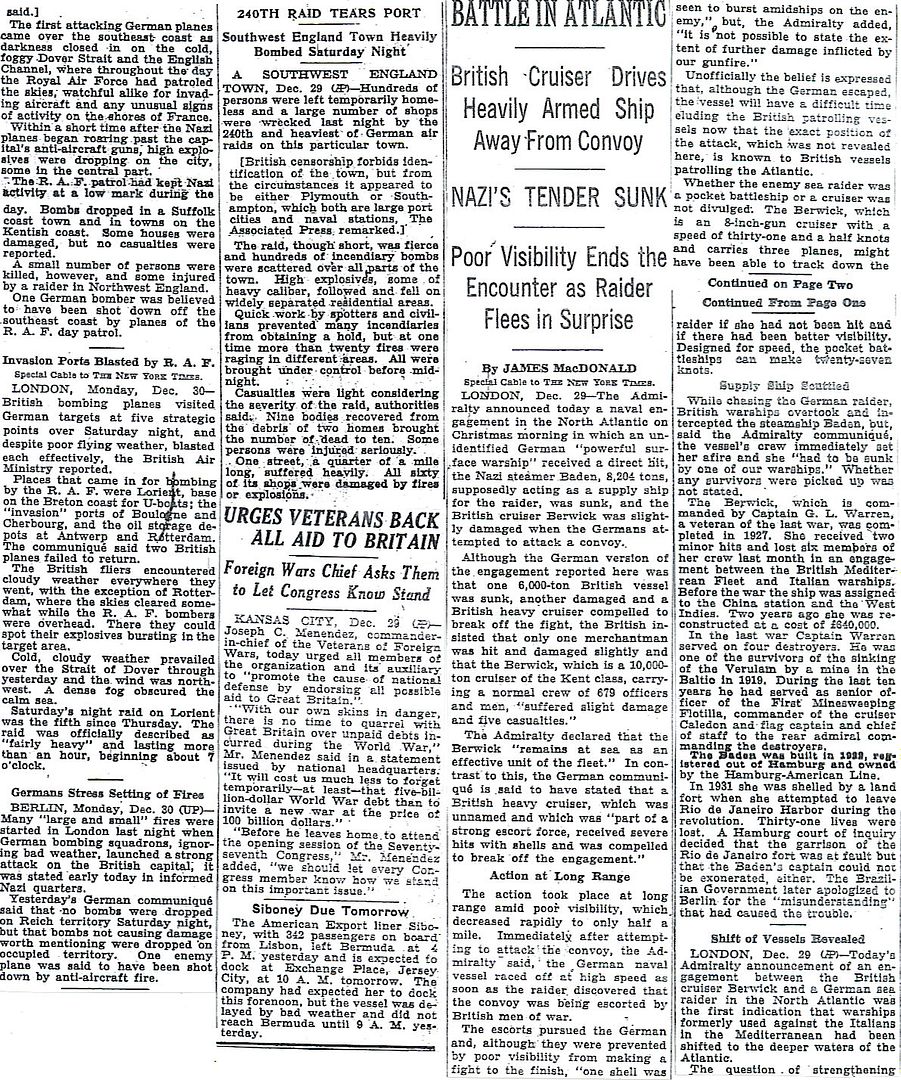
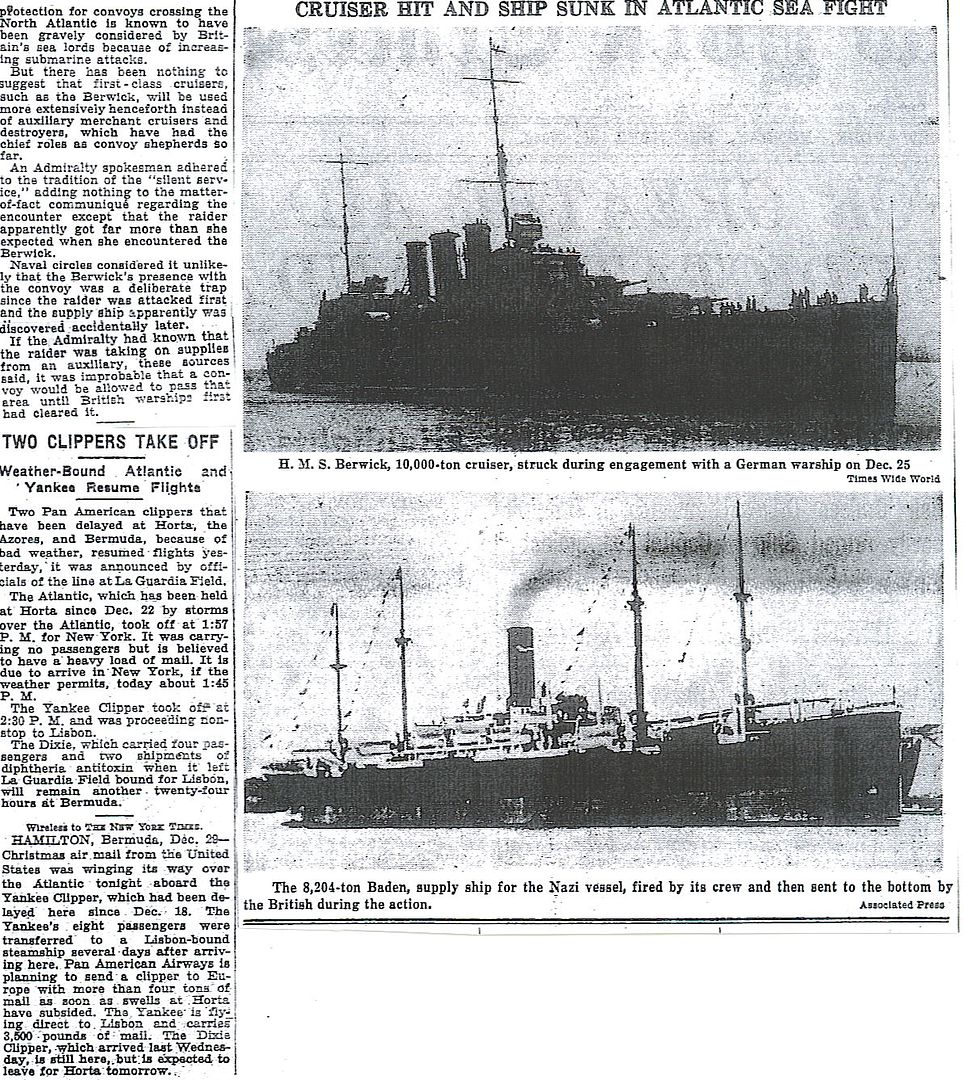
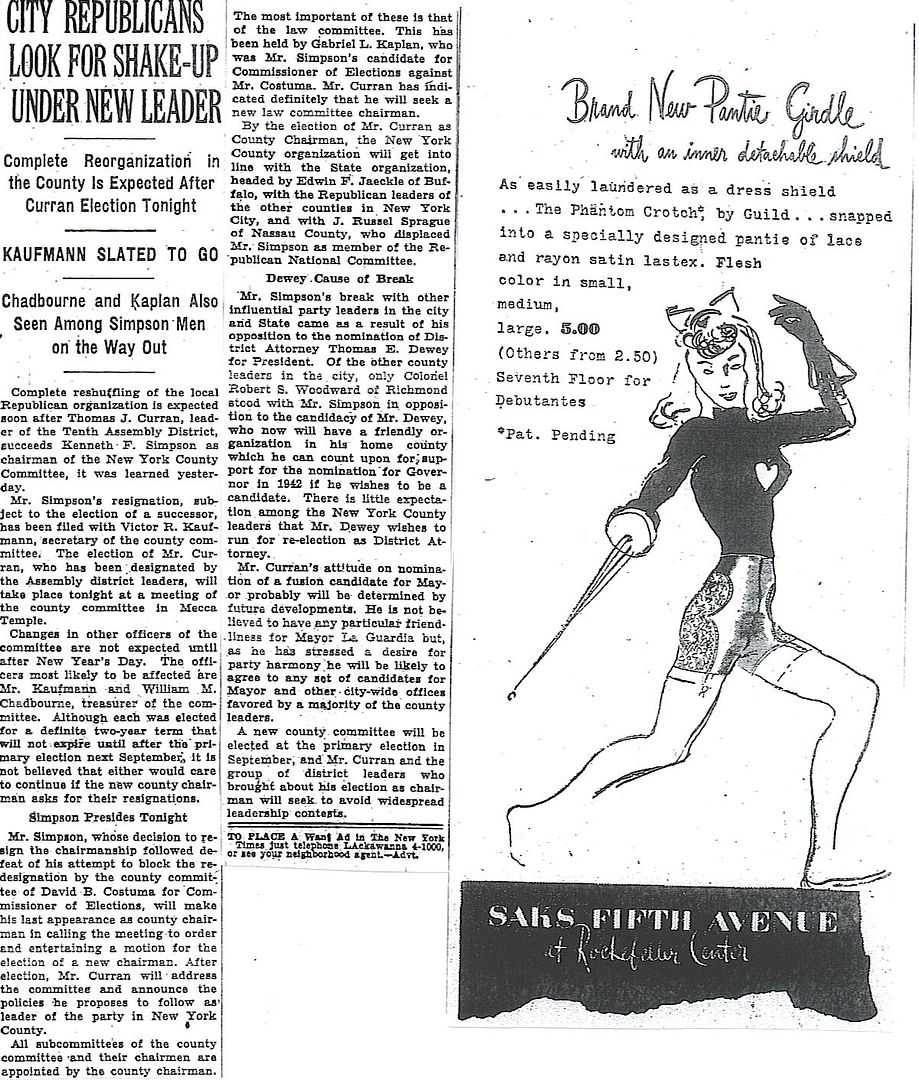
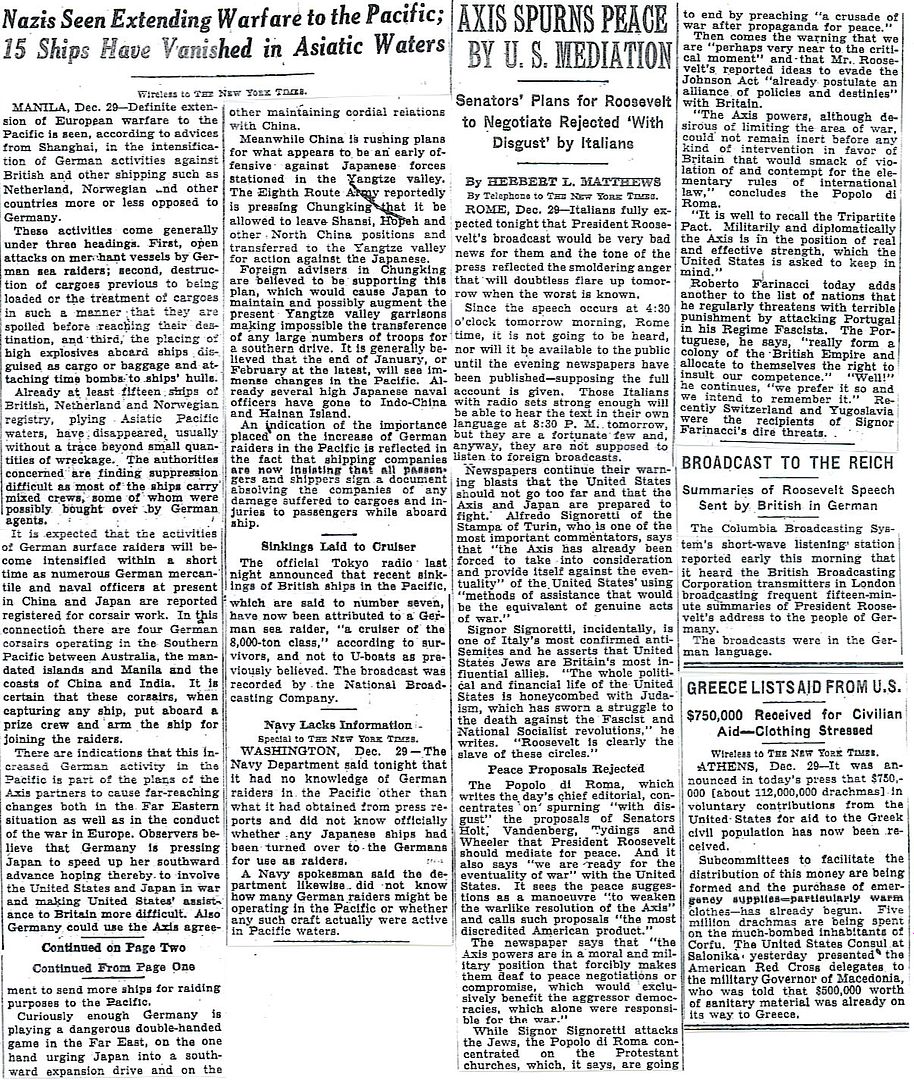
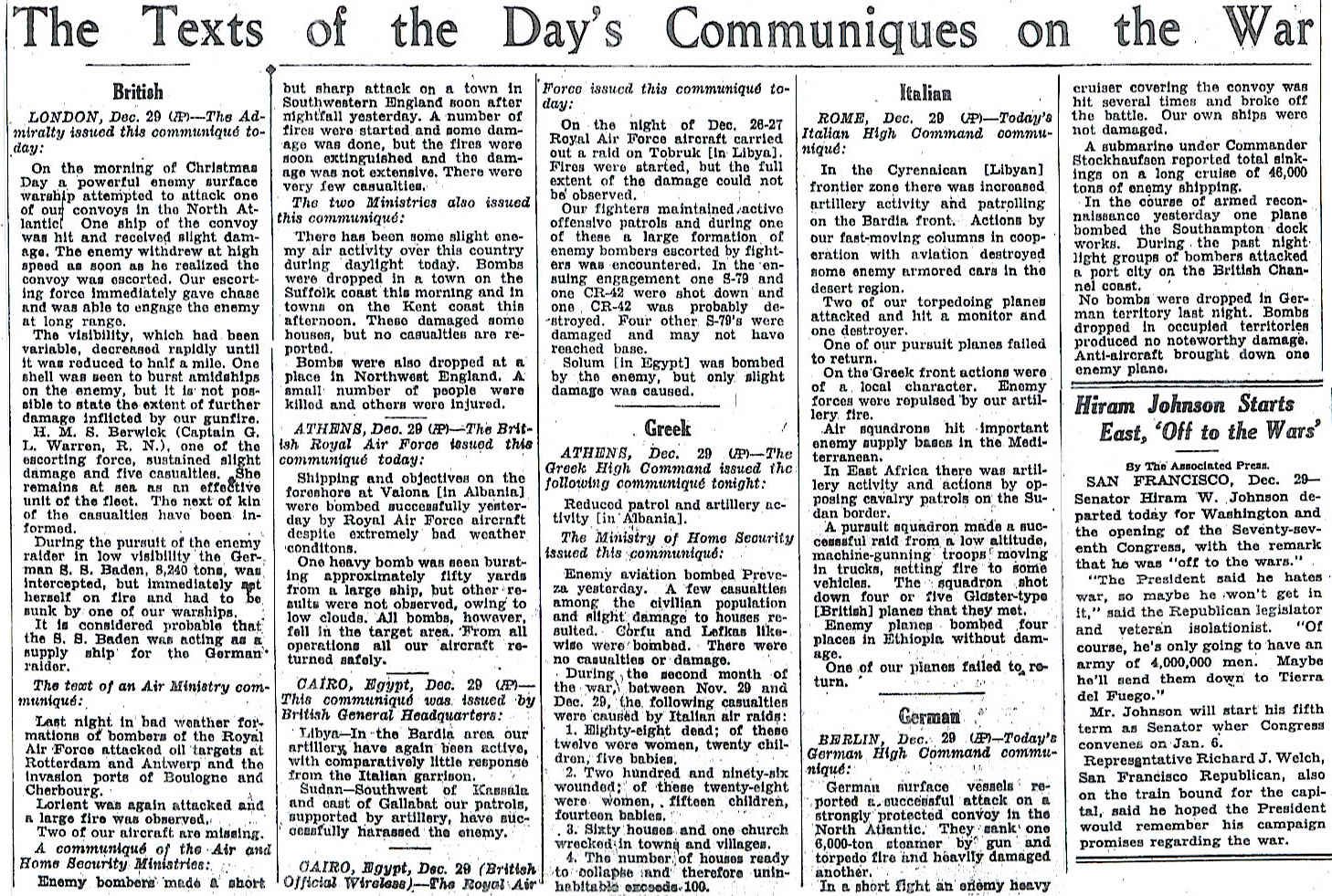
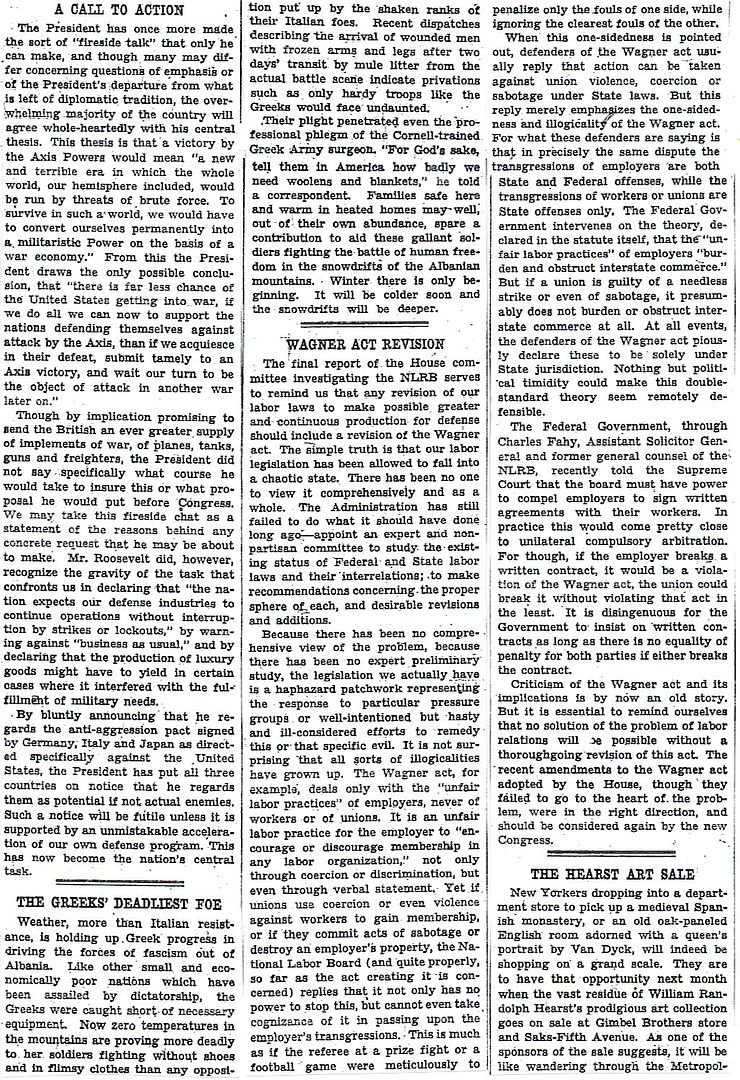
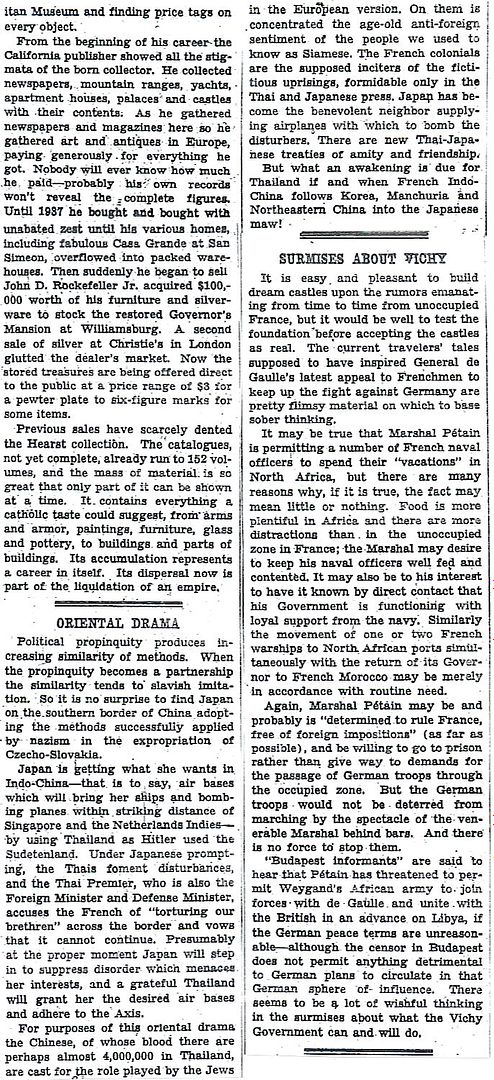
‘Axis Will Not Win’ – 2-3
Address is Spur to British Hopes – 3
Roosevelt Pictures Ireland under Reich – 3
Highlights of Address – 4
Throngs Desert Movies to Hear President; Leave Early to Sit at Home by Radio – 4
The International Situation – 4
President’s Call for Full Response on Defense – 5-7
‘Extremely Interesting,’ Nazi Comment on Speech – 7
Flames Leap High – 7-8
Urges Veterans Back All Aid to Britain – 8
Battle in Atlantic – 8-9
City Republicans Look for Shake-Up under New Leader – 10
Nazis Seen Extending Warfare to the Pacific; 15 Ships have Vanished in Asiatic Waters – 11
Axis Spurns Peace by U.S. Mediation – 11
The Texts of the Day’s Communiques on the War – 12
Editorials – 13-14
A Call to Action
The Greeks’ Deadliest Foe
Wagner Act Revision
The Hearst Art Sale
Oriental Drama
Surmises about Vichy
http://www.onwar.com/chrono/1940/dec40/f30dec40.htm
Burned buildings bombed
Monday, December 30, 1940 www.onwar.com
In Britain... Royal Engineers and Pioneers dynamite fire-gutted buildings in London.
http://homepage.ntlworld.com/andrew.etherington/month/thismonth/30.htm
November 30th, 1940
UNITED KINGDOM:
Southampton: Following severe night attacks by the Luftwaffe, the King visits to see the damage. The business centre of the city bears the brunt of the attack with churches, shops, houses, a cinema and a newspaper office all destroyed. Some 137 people are feared to have died and nearly 500 injured in an attack lasting more than seven hours.
The style of the attack - using thousands of small incendiary devices to start fires, followed by heavy high-explosive bombs - followed the pattern of the raid on Coventry earlier this month. The HEs fractured 74 water mains cutting water pressure sharply and hampering fire fighting efforts. Many fires had to be left to burn themselves out while water was concentrated on the town centre and the docks. The local fire brigades were reinforced by 200 men from other authorities which sent 160 pumps from London, Newbury, even Newport, Monmouthshire and Nottingham. But many of them could not be used because their hose couplings did not fit Southampton’s hydrants.
Pressure is growing to evacuate all women and children, although some of the bravest ambulance drivers here are female.
Submarine depot ship HMS Adamant launched.
Light cruiser HMS Gambia launched.
Corvette HMS Polyanthus launched.
Minesweeping trawler HMS Chestnut mined and sunk off North Foreland. (Dave Shirlaw)
GREECE: Athens: Greek forces capture Pogradetz in eastern Albania.
MEDITERRANEAN SEA:
MERCHANT SHIPPING WAR: Losses: There are no British or Allied shipping losses in November.
CHINA: Nanking: Japan has formally recognised China’s breakaway Reformed Kuomintang government and its premier, Wang Ching-wei, after last minute secret peace talks with Marshal Chiang Kai-shek’s Kuomintang in Chungking broke down.
Chungking is now expected to go on a diplomatic offensive against what it calls Wang Ching-wei’s puppet government and warn foreign governments that it will break off relations with any power that recognises the new regime.
CANADA: Destroyers HMCS St Croix and Niagara departed Halifax for UK.
Minesweepers ordered - HMCS Bayfield, Caraquet, Canso, Guysborough, Ingonish, HMS Fort York, Parrsborough, Qualicum, Shippigan, Tadoussac, and Wedgeworth.
Corvette HMCS Rosthern launched Port Arthur, Ontario.
(Dave Shirlaw)
ATLANTIC OCEAN:
BATTLE OF THE ATLANTIC: Outward bound OB244 and UK-bound SC11 are attacked by two groups of U-boats west of North Channel. 15 merchant ships are sunk, including seven from SC11 by Schepke’s U-100 on the night of the 22nd/23rd.
Important steps are taken in the air war when an RAF Whitley Mk VI equipped with 1.5m wavelength (approximately 200Mhz) anti-surface vessel (ASV) radar locates a U-boat. This is the first success of its kind with a system that is mainly effective by day as contact is lost within two miles of the target. It is the addition of the Leigh light that will turn it into a powerful night-time weapon as well. Now Coastal Command is using depth charges instead of its ineffective A/S bombs.
Losses: 38 ships of 201,000 tons and 3 armed merchant cruisers.
2 German and 1 Italian U-boats.
Merchant Shipping War in European Waters:
Losses: 48 ships of 93,000 tons.
http://worldwar2daybyday.blogspot.com/
Day 487 December 30, 1940
Operation Compass. Australian 6th Division continues perfecting tactics to breach Italian defenses at Bardia while RAF bombs these positions as well as Italian airbases at Tobruk, Derna & Benina. British anti-submarine trawler HMT Bandolero sinks in a collision with Australian destroyer HMAS Waterhen off Sollum, Egypt (no casualties). HMAS Waterhen is repaired at Port Taufiq on the Suez Canal (completed in January 1941). Australian destroyer HMAS Voyager captures Italian ketch Zingarella, transporting British POWs from Bardia to Tobruk. Zingarella will serve in the Royal Navy as a store carrier for the rest of the war.
Destroyer HMS Venomous hits a mine off Liverpool (under repair at Liverpool until February 18 1941).
British steamers Calcium and Sodium collide in the North Sea after Calcium hits a mine (1 killed). Calcium ultimately sinks.
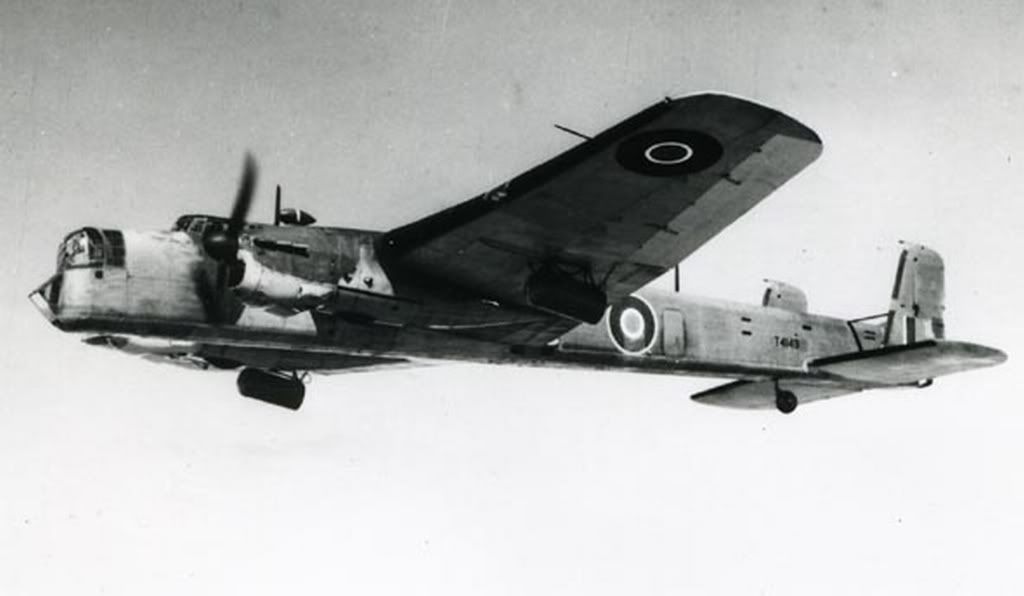
RAF Whitley Mk VI
I believe the German warship HMS Berwick made contact with was the German heavy cruiser Admiral Hipper.
Good call. See reply #6 on the Dec. 25 thread. (PzLdr commented later in the thread also.)
Today we see a report by someone named "Bloch" through Admiral Richardson at Pearl Harbor to Admiral Stark, CNO in Washington.
Who is this Bloch, and is this the report that got Richardson fired?
Please note Bloch's specific discussion of the threat of carrier born aircraft attacking Pearl Harbor, not the Philippines.
So the whole suggestion that somehow the Navy considered a carrier attack on Pearl Harbor "impossible" or "inconceivable" is just not right.
Obviously Bloch and Richardson considered the threat serious enough to require upgrading Pearl's defenses.
Americans were never "neutral" in their sympathies.
From Day One they wanted to do everything possible to help the Brits -- everything short of war.
But according to the polls, by end of 1940 for the first time: 60% of Americans wanted to continue helping Britain, even if that risked drawing America into the war.
In other words, in December 1940, Americans are still hoping against hope that the US can stay out the war, but are willing to do more and more to help Britain win it.
Roosevelt, bless his lying heart, merely reflected what most Americans already felt.
Whoops, I really have to have my morning six cups of coffee before I post. The HMS Berwick was of course a Royal Navy “County” class heavy cruiser.
Can’t tell you how much I look forward to reading this thread-it’s the first thing I read every day and I hope to participate a little more in it when the Russo-German conflict opens, which is my particular area of expertise.
Thanks again Homer!
Admiral Claude Bloch, commander of the Fourteenth Naval District.(Hawaii)
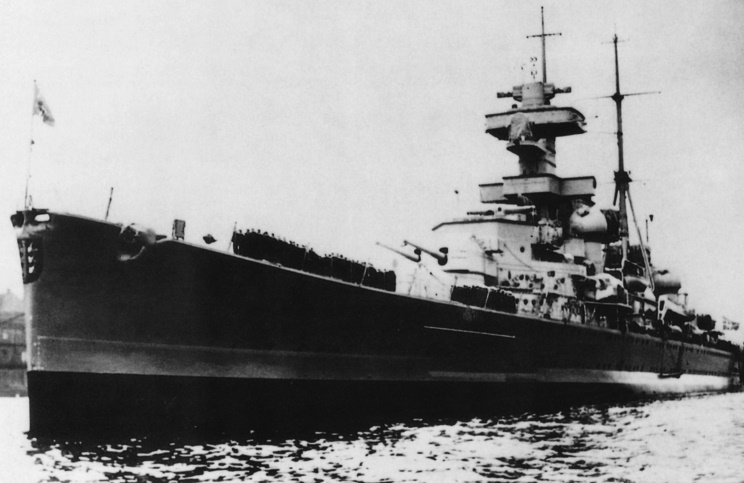
Admiral Hipper at her April 29, 1939 Commissioning
I'd hardly call FDR "Big Brother" in the George Orwell, 1984 sense... unless I were a Japanese-American, or maybe member of the German Bund...
Roosevelt at this point is not playing "Big Brother", he's only doing everything he thinks Americans and Congress will let him get away with, to help out the Brits.
Admiral Claude Charles Bloch was the Commandant of the 14th Naval District which encompassed the facility and Navy yard at Pearl Harbor.
While Richardson is responsible for the U.S. Fleet, Bloch is responsible for the fleet stationed at Pearl.
I have a copy of the Bloch memo, but didn’t post it because it is really hard to read. It does go into detail as to air defenses and particularly the number of 3” guns firing rounds with 21 second fuses. Unfortunately the nature of the actual attack would make these useless even if they were supplied in sufficient numbers. I think the Navy understood the risks with Pearl, but I don’t think the fully understood what to do about it. Bloch’s memo itself talks of the obsolete Army bombers (B-18 Bolos) at Pearl that would be used for attacking the enemy fleet. At this time they still have not come to terms with just how difficult it is to hit a ship with a high altitude bomber.
Let me know if you want me to post the whole memo. It’s hard to read, but I’ll throw it on this thread tomorrow if you are interested.
Disclaimer: Opinions posted on Free Republic are those of the individual posters and do not necessarily represent the opinion of Free Republic or its management. All materials posted herein are protected by copyright law and the exemption for fair use of copyrighted works.